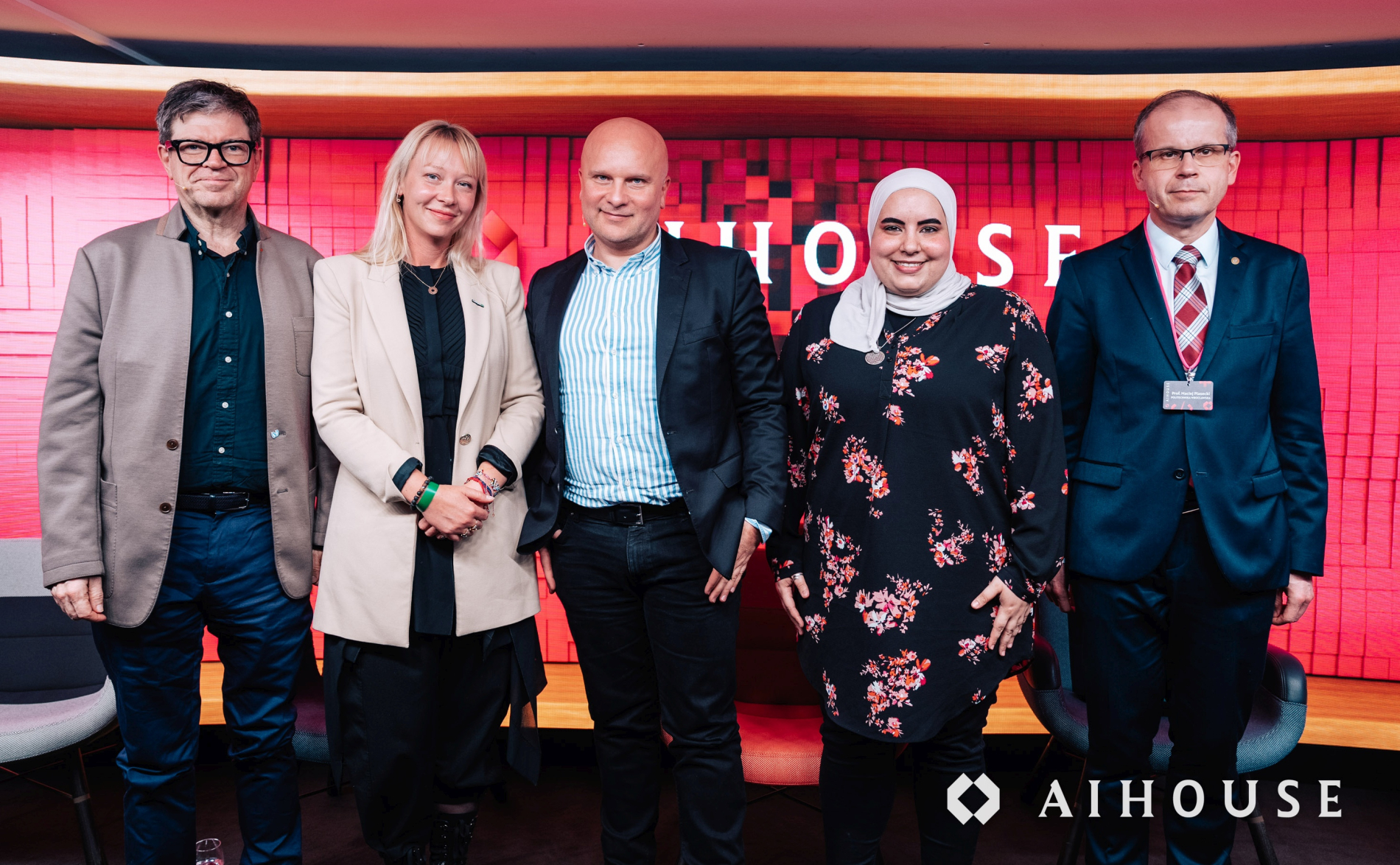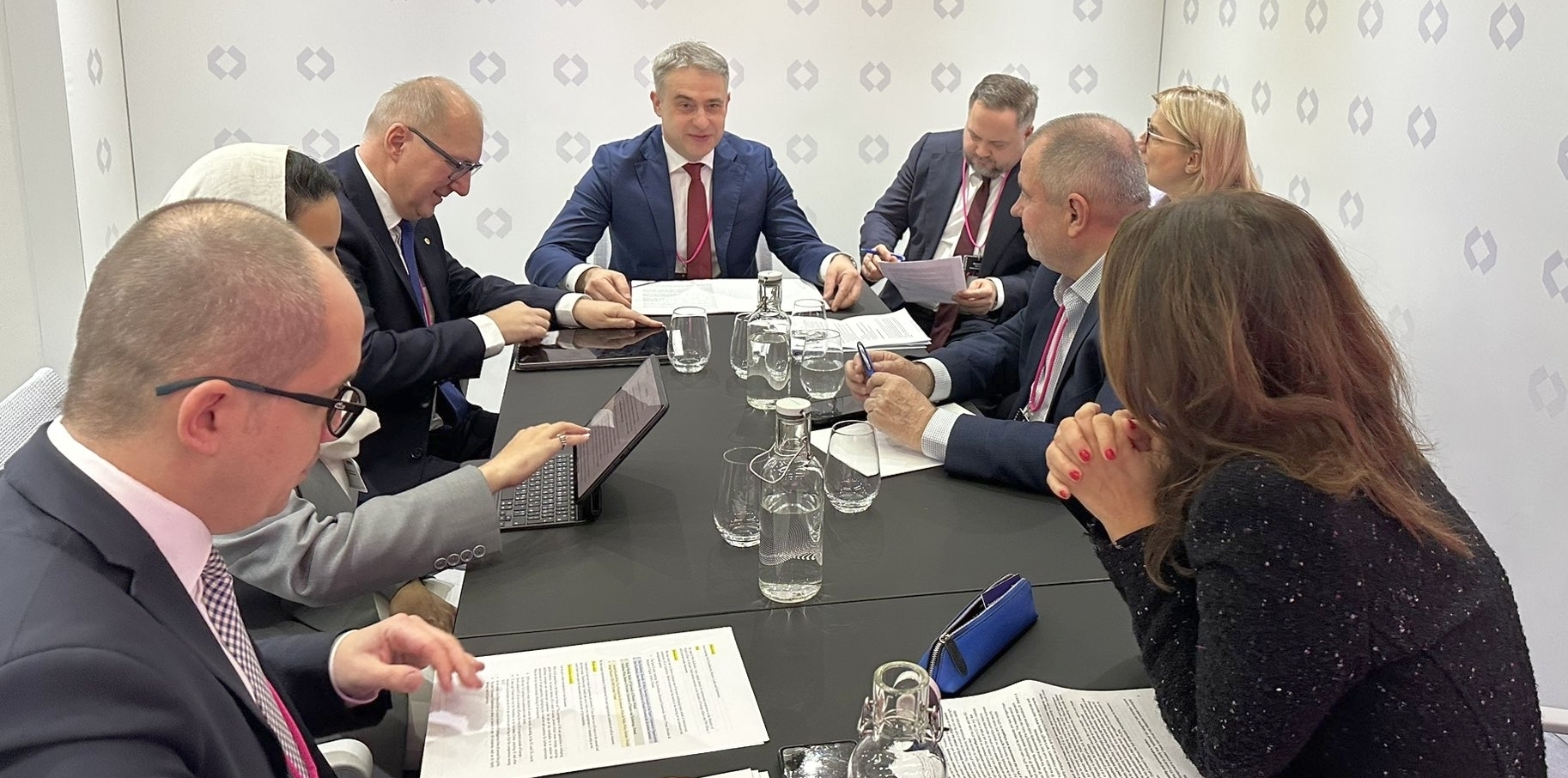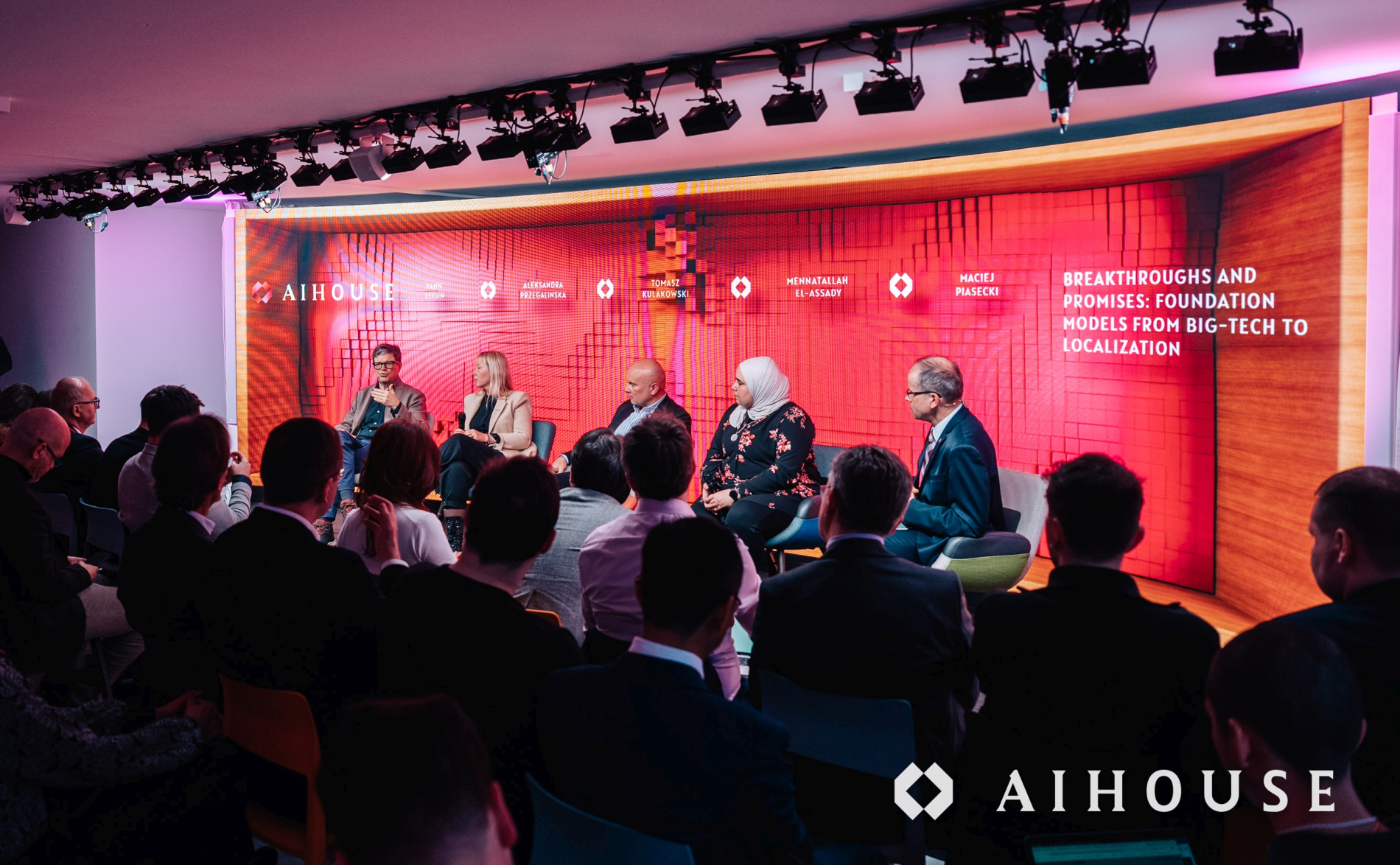YOUR BROWSER IS OUT-OF-DATE.
We have detected that you are using an outdated browser. Our service may not work properly for you. We recommend upgrading or switching to another browser.
Date: 23.01.2025 Category: general news, international cooperation

Fot. World Economic Forum 2025
The 55th World Economic Forum is underway in Davos. The event, which brings together heads of state from all over the world, entrepreneurs and academics, was attended by representatives of Wrocław University of Science and Technology. Our university co-organised debates and panels on artificial intelligence.
This year's edition of the forum brought together 350 political leaders, including 60 heads of state and government, as well as nearly three thousand political leaders from more than 130 countries and 900 business heads. The deliberations are being held under the theme ‘Cooperation in the Age of Intelligence’.
Forum participants devote considerable attention to the opportunities presented by the development of artificial intelligence (AI), which is fast becoming a cornerstone of many areas of knowledge and key technologies. They also refer to the potential risks of its expansion - including the risk of job losses, the need to retrain millions of workers, and the impact of disinformation that can undermine the trust that is the foundation of education and democracy.
The forum organisers also emphasise the need to develop a geopolitical way of thinking about artificial intelligence and automation.

Photo: Ministry of Digitalisation
Representatives of our university actively participated in discussions on shaping the role of artificial intelligence in society, organised as part of the so-called AI House. On Tuesday, Prof Arkadiusz Wójs, Rector of Wrocław Tech, took part in the panel ‘Geopolitics meets AI: What now?’. - Among other things, we discussed ethical principles related to the use of AI, including ubiquitous disinformation, says the rector of our university.
He exchanged his thoughts and experiences with the Deputy Prime Minister and Minister of Digitalisation - Krzysztof Gawkowski, the Rector of the University of Warsaw - Prof. Alojzy Nowak, the Secretary General of the Digital Cooperation Organisation (DCO) - Deemah AlYahya, as well as Dr Anne Bouverot of the AI Action Summit, Kinga Piecuch - Head of Hewlett Packard Enterprise Poland, and Annette Kroeber-Riel - Vice President of Government Affairs and Public Policy for Europe at Google.
In a roundtable format, participants also discussed how artificial intelligence is changing power dynamics between nations, from technological competition to concerns about national security and economic dependencies. They also discussed the opportunities that artificial intelligence offers to address such global challenges as climate change and public health.
- Such meetings shape the modernity and responsibility of universities, comments Prof. Arkadiusz Wójs. - I, after the Davos talks, return to Wroclaw with many new ideas, and I am optimistic about the further development of AI.
Meanwhile, in the session entitled ‘Breakthroughs and Promises: Foundation models from big-tech to localisation', invited guests discussed, among other things, the benefits of developing large language models (LLMs).
- ‘We discussed the advantages of creating and maintaining local language models using the example of our open PLLuM model, designed for all applications and already implemented in the form of a virtual assistant for users of public institutions,’ - says Professor Maciej Piasecki from the Faculty of Information and Communication Technology, who moderated the meeting.
 Photo: World Economic Forum 2025
Photo: World Economic Forum 2025
Aleksandra Przegalińska (CampusAI, Harvard University Fellow), Tomasz Kulakowski (CEO of deepsense.ai), Yann LeCun (Chief AI Officer, META) and Prof. Mennatallah El-Assady (ETH Zürich), focused on explaining why relying solely on large, commercially produced language models is not sufficient, especially for specific government and business needs.
A total of seven events were organised as part of the AI House in Davos: three substantive panels, three so-called roundtables and a networking breakfast. The entire event was co-organised by the Ministry of Digitalisation in cooperation with the University of Warsaw and the Wrocław University of Science and Technology.
Our site uses cookies. By continuing to browse the site you agree to our use of cookies in accordance with current browser settings. You can change at any time.